McGregor triplets to start kindergarten at Chittaway Bay Public School
WHEN Grayson, Leon and Tiernan McGregor start kindergarten at Chittaway Public School tomorrow, their parents will have the quietest house they’ve had in years — at least during school hours.
Central Coast
Don't miss out on the headlines from Central Coast. Followed categories will be added to My News.
- You’re never too big for a great cossie
- Government says yes to major new seniors development
- Funding found to stop beach erosion
- Kasey Chambers gets highest accolade
WHEN identical triplets Grayson, Leon and Tiernan McGregor start kindergarten at Chittaway Public School tomorrow, it will be the beginning of a whole new era for their family.
For the boys, the beginning of a learning journey which will see them grow as individuals with their own strengths and interests.
For their Glenning Valley parents Laurelea and Iain, the house will be the quietest it’s been in years — at least during school hours.
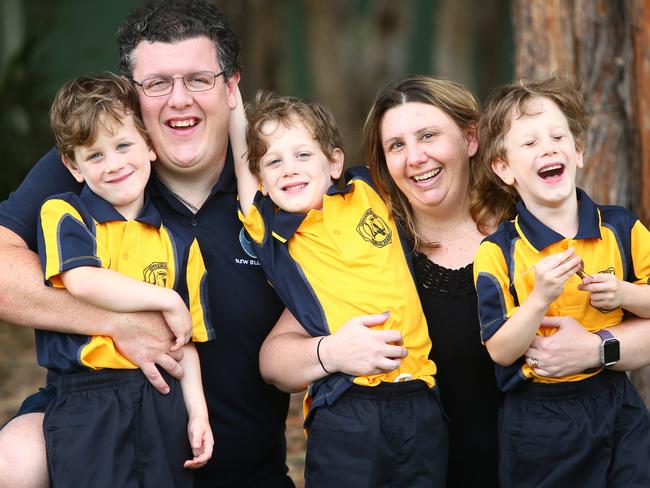
Mr and Mrs McGregor said they were excited for the boys to be starting school.
“We feel like they are ready for this next step,” Mrs McGregor said.
“It’ll have its own challenges too, because they are different people, with their own needs and interests and things they are good at,” she said.
“And that’s going to become more obvious at school.
“I expect time is going to be tricky as usual, getting through reading and homework.”
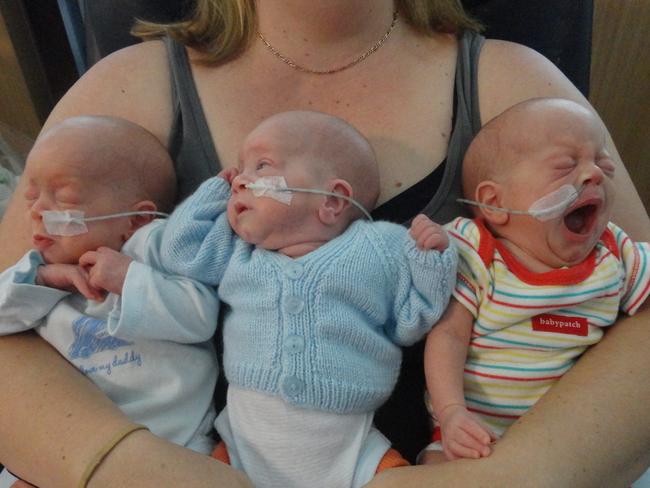
Life with the lively triplets has been eventful and challenging since the boys were delivered at just 29 weeks at King Edward Hospital in Perth, where they remained in the neo-natal intensive care unit for weeks.
The couple had been married for only a year when they learned they were going to become parents of triplets.
It was particularly surprising since they were conceived naturally, with the odds in the millions to one.
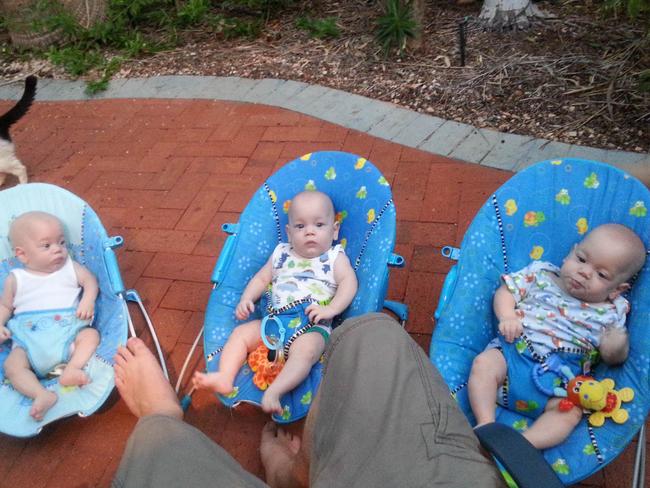
And they said nothing was easy in that first chaotic year with the triplets — a blur of feeding and changing — held together with uncompromising daily routines.
“We were very strict with sleeping and eating routines from the start,” Mr McGregor said.
“If you break your routine, you very quickly realised you would regret it.”
It meant few opportunities to go out and socialise, but it kept everyone sane.
And, of course, being parents of triplets also has many joys.
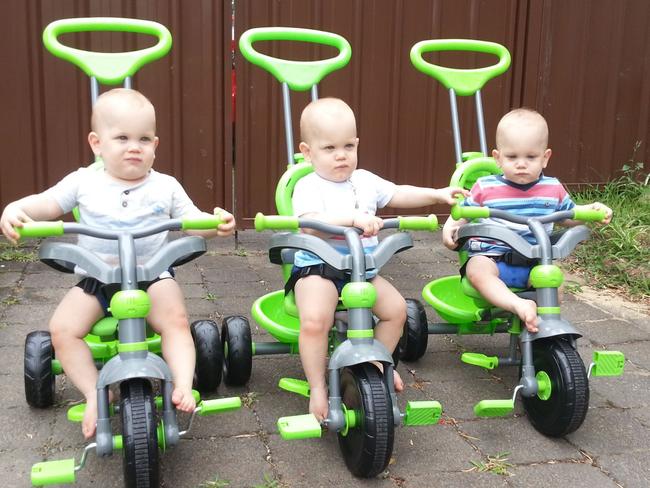
“The love they have for each other is a joy to see,” Mr McGregor said.
“Watching them play together and observing the interaction between them is fascinating.”
Mr and Mrs McGregor said multiple births could put a strain on any relationship, but the couple took it in turns at being the main care giver for the boys, and that tactic had helped foster mutual understanding.
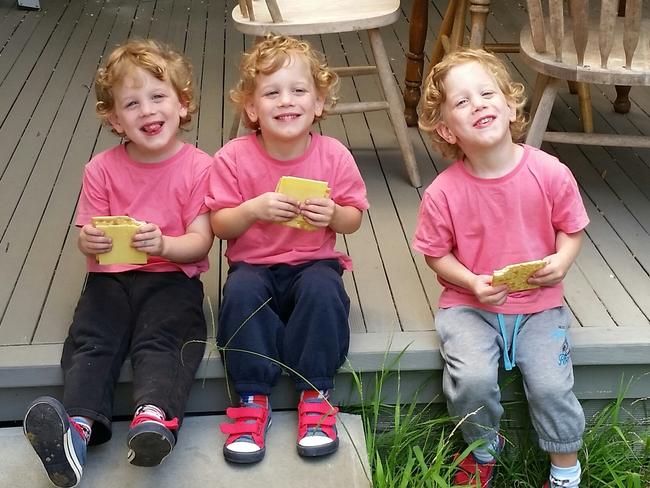
Mrs McGregor is a native title lawyer, while Mr McGregor is an IT specialist.
“We’ve known each other since we were in high school, and I think that helps,” Mrs McGregor said.
“But raising triplets is a two-person job, and we share that.”
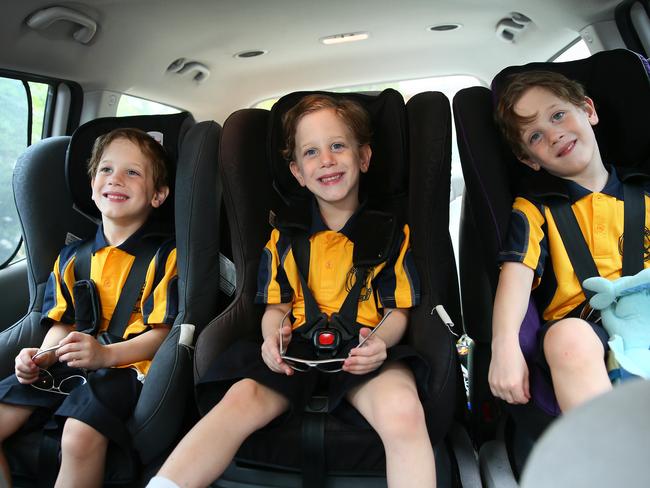
TRIPLET FACTS
■ Fraternal triplets (tri-zygotic) are created when three eggs are released and each is fertilised by a different sperm
■ Identical triplets (monozygotic) are created when only one egg is released and fertilised, but splits, and then one half splits again. Very rare.
■ Mixed triplets — two identical and one fraternal (a pair and a spare!) occur when two eggs are released and fertilised separately, and one of those fertilised eggs splits again.
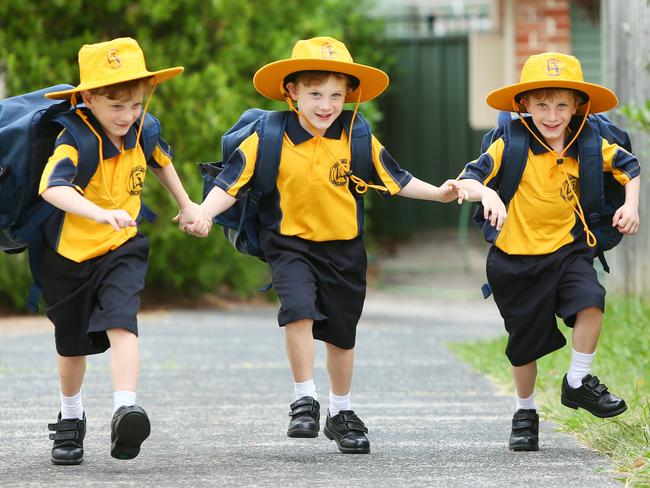
■ Identical triplets share 100% of their DNA, are the same sex, have the same blood types, hair and eye colour, hand and footprints but have different teeth marks and fingerprints.
■ Over 90% of triplets and quadruplets are born prematurely and/or have low birth-weight (34 weeks is expected triplet pregnancy length & 1.8kg birth weight)
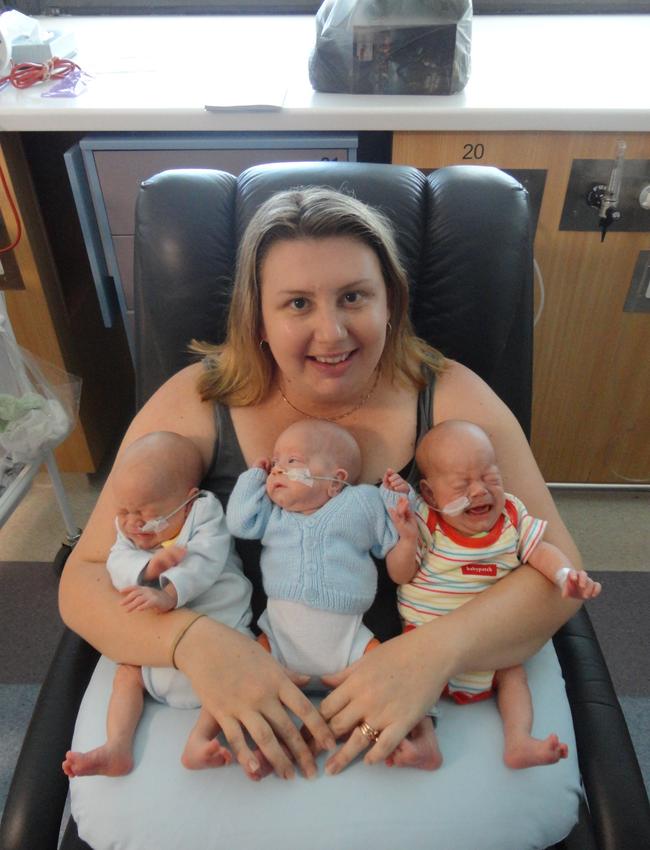
■ A 1983 study revealed that a mother of six-month-old-triplets expends an average of 197.5 hours per week (out of a possible 168) between herself and paid/volunteer assistance, on the care of her children and home. This did not include a time allowance for mother to bathe, dress, sleep, eat, relax or talk with partner!


